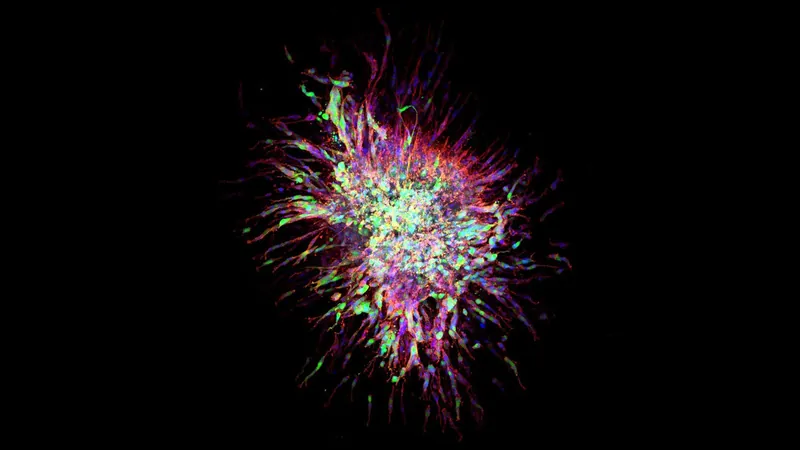
Shocking Study Reveals HPV's Link to Heart Disease: Are You at Risk?
2025-04-04
Author: Rajesh
New research presented at the American College of Cardiology's Annual Conference has unveiled a surprising link between human papillomavirus (HPV) and an increased risk of heart disease. This groundbreaking study is the first of its kind to analyze data from nearly 250,000 patients globally, revealing that individuals infected with HPV face a significantly heightened risk of developing cardiovascular problems.
Among the alarming findings, researchers discovered that people with HPV are 40% more likely to develop cardiovascular disease and are twice as likely to suffer from coronary artery disease compared to those without the infection. Even after factoring in traditional risk variables such as smoking, diabetes, and family history, HPV-positive individuals maintained a 33% increased likelihood of developing cardiovascular conditions.
HPV is primarily known as a sexually transmitted infection and is recognized as the leading cause of cervical cancer, particularly in lower- and middle-income countries where it poses a serious threat to women's health. However, its connection to heart issues had largely gone unnoticed until now, marking a significant shift in understanding the potential systemic risks posed by this common infection.
The researchers identified seven studies conducted between 2011 and 2024 that assessed HPV status and cardiovascular outcomes across follow-up periods ranging from 3 to 17 years. These studies tracked patients aged 20 to 75 years from various countries including the US, South Korea, Brazil, and Australia, providing a comprehensive view of the issue.
Interestingly, no strong link was found between HPV and high blood pressure, a key risk factor for heart disease. However, the researchers suspect chronic inflammation triggered by HPV could play a crucial role in increasing cardiovascular risk. This inflammation is known to contribute to conditions such as coronary artery disease, characterized by the buildup of plaque in arteries, which can severely restrict blood flow to the heart.
Dr. Stephen Akinfenwa, a lead author from the University of Connecticut School of Medicine, highlighted the importance of recognizing such "non-conventional" risk factors for heart disease, emphasizing that approximately 20% of cardiovascular disease cases are unexplained by traditional risk factors. This discovery could pave the way for better comprehension of heart disease prevention strategies.
Further indicating the severity of the HPV-heart disease connection, a recent study from South Korea revealed that women with high-risk strains of HPV are four times more likely to succumb to cardiovascular disease. Prof. Hae Suk Cheong, one of the researchers, speculated that HPV may lead to inflammation of blood vessels, further exacerbating the risk of artery blockage and damage.
With these revolutionary findings, it may be prudent for healthcare providers to adopt more rigorous monitoring of cardiovascular health in HPV-positive patients, aligning this approach with current strategies for managing established heart disease risk factors.
Moreover, HPV vaccination could be a pivotal step in minimizing cardiovascular risks moving forward. The World Health Organization recommends that girls as young as nine, and young women, receive the HPV vaccine to prevent cervical cancer. Unfortunately, vaccination programs were not widely implemented in high-income countries until 2006, while many lower-income countries are just beginning to roll out these essential vaccinations. Organizations like Gavi are actively working to support HPV vaccine initiatives in regions where they are still lacking.
Looking ahead, researchers are hopeful that future studies will confirm if widespread HPV vaccination can significantly lower heart disease rates linked to HPV, potentially transforming our understanding of both cancer prevention and heart health. Are you or someone you know at risk? Stay informed and take action today!



 Brasil (PT)
Brasil (PT)
 Canada (EN)
Canada (EN)
 Chile (ES)
Chile (ES)
 Česko (CS)
Česko (CS)
 대한민국 (KO)
대한민국 (KO)
 España (ES)
España (ES)
 France (FR)
France (FR)
 Hong Kong (EN)
Hong Kong (EN)
 Italia (IT)
Italia (IT)
 日本 (JA)
日本 (JA)
 Magyarország (HU)
Magyarország (HU)
 Norge (NO)
Norge (NO)
 Polska (PL)
Polska (PL)
 Schweiz (DE)
Schweiz (DE)
 Singapore (EN)
Singapore (EN)
 Sverige (SV)
Sverige (SV)
 Suomi (FI)
Suomi (FI)
 Türkiye (TR)
Türkiye (TR)
 الإمارات العربية المتحدة (AR)
الإمارات العربية المتحدة (AR)